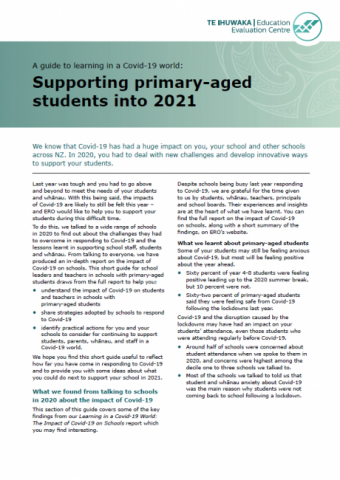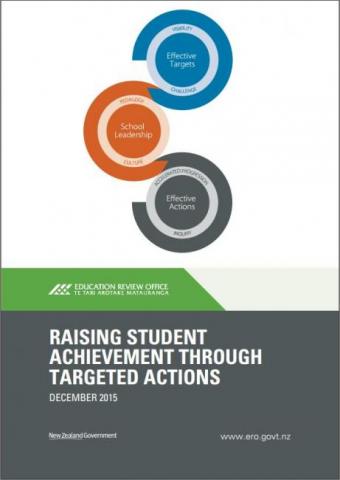A guide to learning in a Covid-19 world - Supporting primary-aged students into 2021
Published: 19 Jan 2021
This short guide is for school leaders and teachers in schools with primary-aged students. It covers what we found from talking to schools in 2020 about the impact of Covid-19, and shares strategies used by schools to respond to the challenges they faced. It also sets out some actions that could be considered for continuing to support students, parents, whānau and staff in 2021.
- Audience:
- Education
- Schools
- Content type:
- Research
- Topics:
- COVID-19
- Primary















